


Theme
5JJ Interprofessional education 2
INSTITUTION
Nagoya University Graduate School of Medicine, Education for Community-Oriented Medicine
Nagoya University School of Medicine, Center for Medical Education

According to the World Federation for Medical Education (WFME), global standards in medical education are required worldwide for better health care. It goes without saying that communication skill and teamwork skill are essential for global standards in medical education.
The aim of our study is to measure teamwork communication skill (TCS) and perception of other professions as a factor which may effect on those skills through the IPE.
42 students were divided into six small mixed groups to discuss and interview the standardized patients(SPs). This IPE program was composed of the five group discussion sessions to make care-plans for SPs with lung cancer. The main disussion point was how the SPs and familiy need for their End-of-life care.
Table 1. Participants:

Table 2. IPE program in Nagoya University School of Medicine:
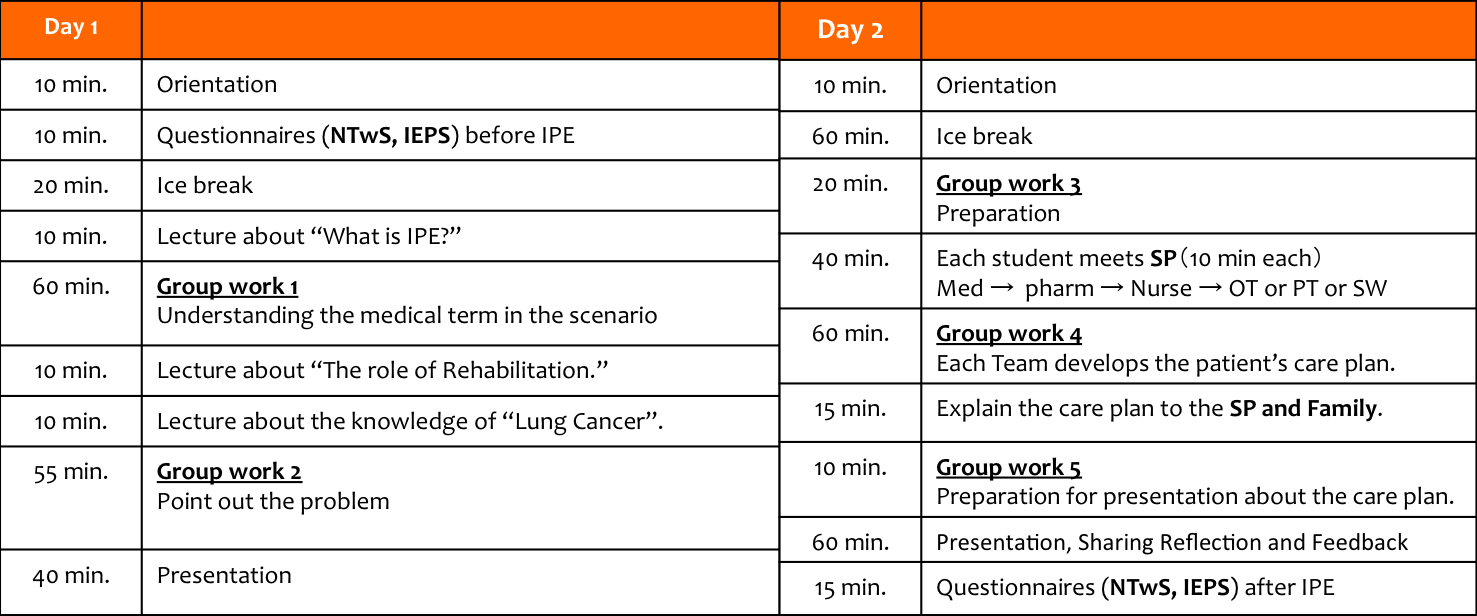
Table 3. Quesstionarries:

※NTwS: Nagoya Teamwork Scale was developed by Abe K.7)
※IEPS: Interdiciplinary Education Peeception Scale was translated into Japanese and developed by Itakura M and Sugimoto N.6)
1) Group work 2) Explain to SP and Family
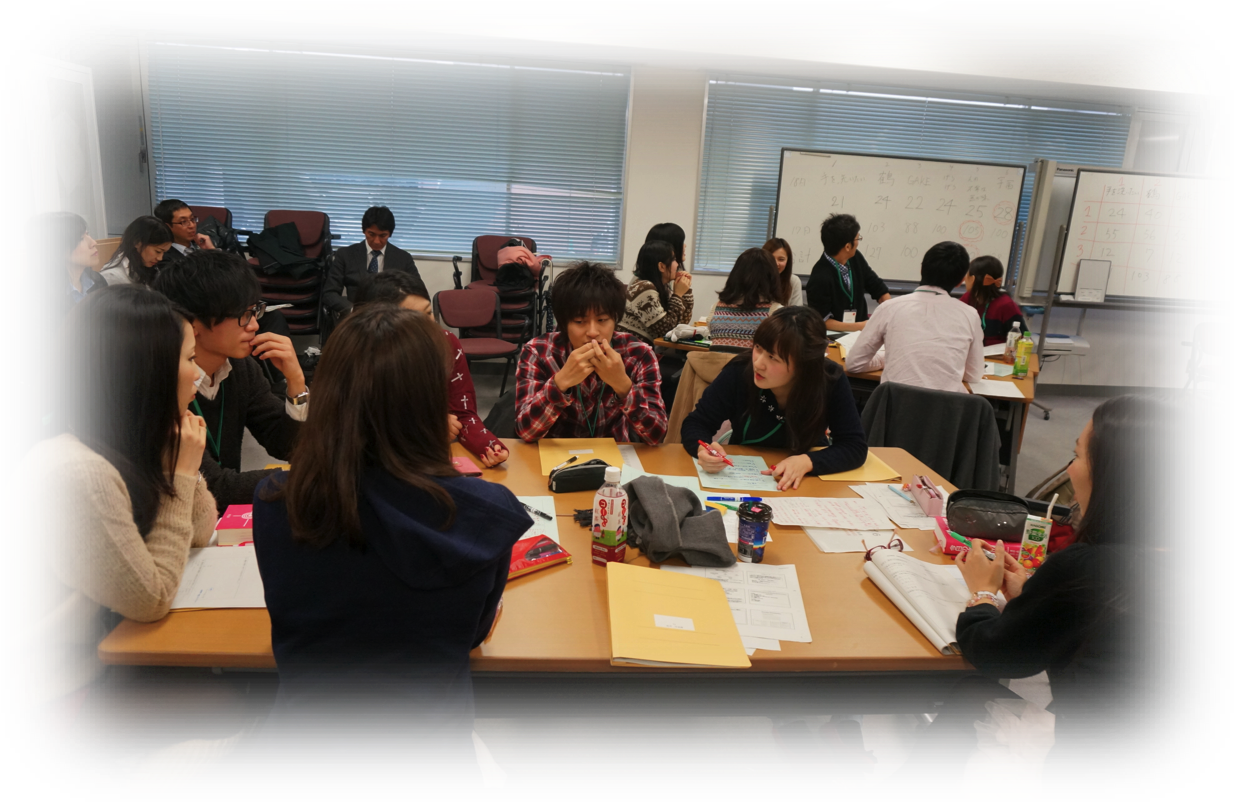
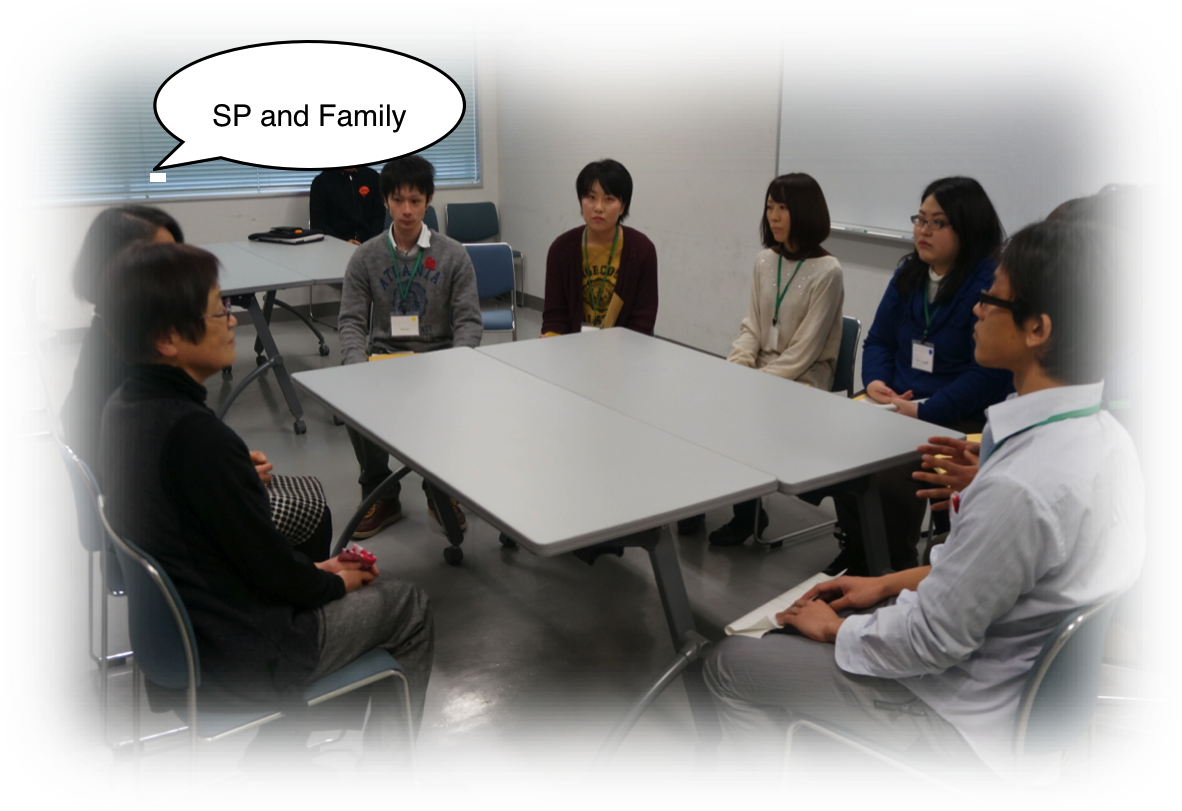
This study was approved by the Ethics Committee of the Nagoya University School of Medicine.
1) The Interdisciplinary Education Perception Scale (IEPS): An alternative remodelled sub-scale structure and its reliability. A.K. McFadyen, MSc et al. 2007, Vol. 21, No. 4 , Pages 433-443
2) Assessing professional perceptions: design and validation of an Interdisciplinary Education Perception Scale. Luecht RM et al, J Allied Health. 1990 Spring; 19(2):181-91.
3) Grobal Standards and Accreditation in Medical Education: A view from the WFME. Hans Karle.Academic Medicine, Vol. 81, No.12/ December 2006 Supplement
4) Cross over training with medical, pharmacy and nursing students. Yasui H. 2011, Kyoto Hirokawa publisher, Tokyo.
5) Medical Interview and Simulated Patient, Suzuki T, Abe K. 2011. Nagoya University Publisher, Nagoya.
6) Itakura M, Sugimoto N. Development of Interdisciplinary Education Perception Scale (IEPS) in Japanese. 5th Congress of the Japan Association for Interprofessional Education, Oct. 8 2012
7) Development of Nagoya Team Work Scale (NTwS) to measure. Abe K, Medical Education(Japan) suppl. 45 2014
8) Playing interprofessional games: reflections on using the Interprofessional Education Game (iPEG). Joseph S, Diack L. J Interprof Care. 2014 Aug 7:1-3.
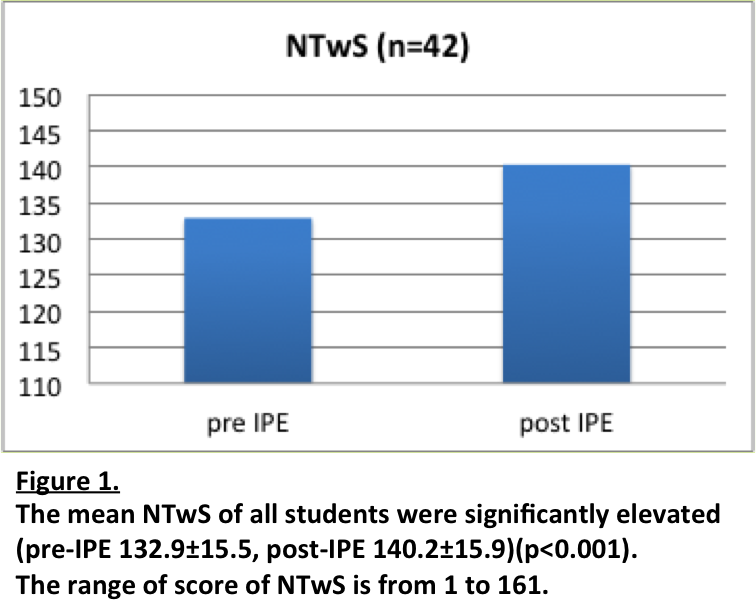
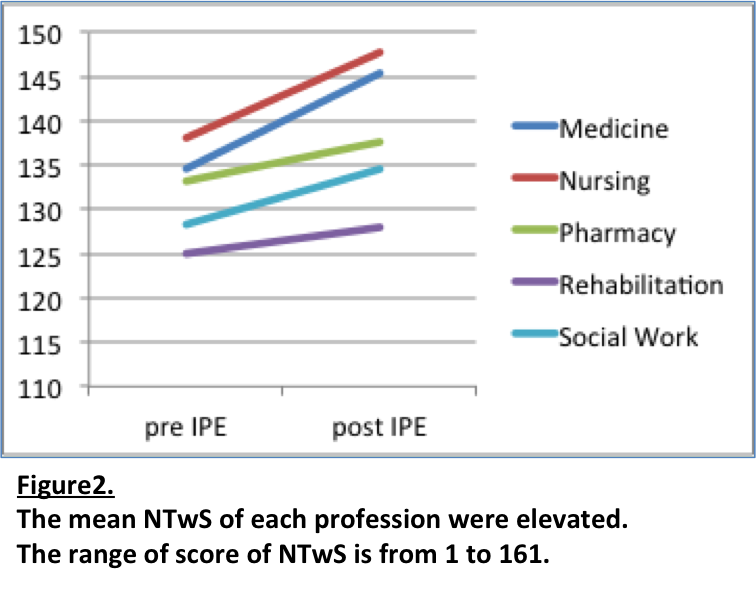
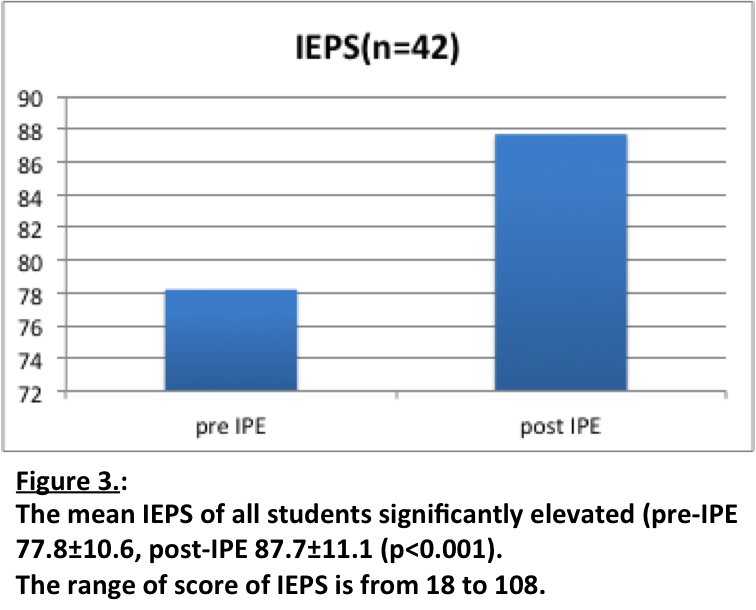
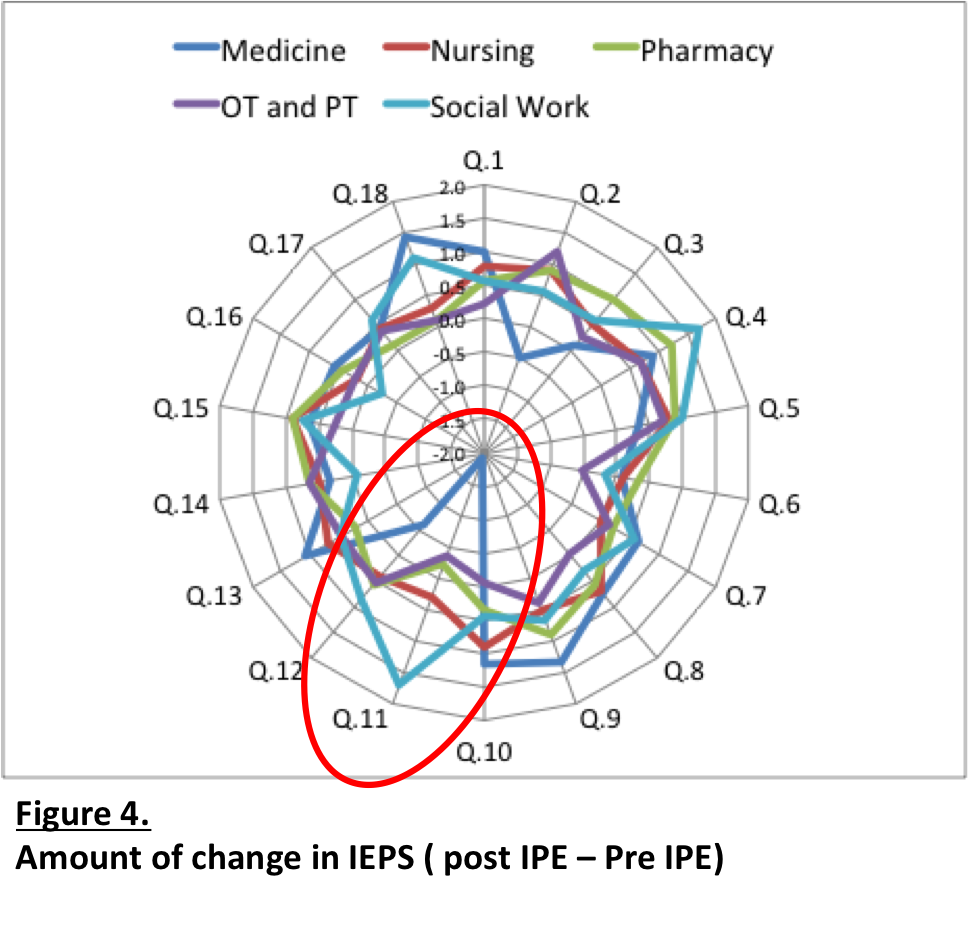
Table 4. Detail scores of each profession focused on Q11(IEPS).
Q 11.: Individuals in my profession have a higher status than individuals in other professions.

1. Although several limitations (small sample size, not compared to the other strategies) remained, our IPE program was useful strategy to improve TCS.
2. 5 repeated group works and mixed professions were two main factors required interactive communication skill.
3. Overall, our results of IEPS showed understanding of other professionals' role and perception deeply.
4. Self professional confidence in medical students were decreased (Q11.), however the result suggested a positive outcome for understanding other professions.
5. McFadyen reported that Q11 may not be appropriate for the assessment of undergraduates at the start of their professional development. Further analises should be done to use IEPS for Q11.
Interprofessional education (IPE) program could be one of the most important strategies for global standards in medical education.
 Send Email
Send Email